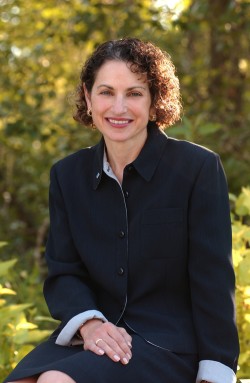Portland State’s search committee for a new provost announced on March 28 that after much deliberation between four candidates it had selected Sona Karentz Andrews to replace outgoing Provost and Vice President of Academic Affairs Roy Koch. The selection of Koch’s replacement was a methodical endeavor consisting of a nationwide fielding of candidates and public forum interviews before the selection committee made its final decision.
Sona Karentz Andrews named new provost and vice president of Academic Affairs

Portland State’s search committee for a new provost announced on March 28 that after much deliberation between four candidates it had selected Sona Karentz Andrews to replace outgoing Provost and Vice President of Academic Affairs Roy Koch. The selection of Koch’s replacement was a methodical endeavor consisting of a nationwide fielding of candidates and public forum interviews before the selection committee made its final decision.
Andrews has held the position of provost and vice president for Academic Affairs at Boise State University and at the University of Wisconsin, Milwaukee, encompassing a 22-year career. Andrews was also a professor of geography at the University of Minnesota and the University of Wisconsin.
“She was our first choice out of a pool of outstanding candidates, and I look forward to working with her,” said Jon Fink, PSU vice president and head of the provost search committee, in a statement released on PSU’s website.
As provost, Andrews will oversee all seven schools at PSU, working on academic platforms and budgeting with faculty and administration, reporting to PSU President Wim Wiewel. This year brings extra emphasis on the position as PSU rethinks its budgeting system and strives to become more research-oriented while maintaining accessibility to education and resources for students.
The provost search committee was made of up individuals nominated from various facets of the PSU administration and faculty chosen in order to create a group that showcased a variety of perspectives. This included administrators like the vice president for Enrollment Management and Student Affairs, the associate vice president for Human Resources, the associate vice president and chief information officer, the deans of several colleges including public affairs and engineering and faculty of various university programs.
Donna Bergh, special assistant to Koch, also served on the search committee and said in an email that the “search committee members were seeking candidates who demonstrated the following: successful administrative and budgetary experience in a complex organization, academic background that qualifies for a tenured faculty position, collaborative leadership experience with appreciation for a diversity of perspectives, and commitment to the mission of our university.”
According to chemistry professor and presiding officer of the faculty senate Dr. Gwen Shusterman, the faculty’s interviews with all the candidates “focused on the issue of communication,” and that one of the most important issues weighed by the faculty was “how the new provost would maintain communication between administration and faculty.”
One important issue consistently addressed at the open meetings with the candidates was how the incoming provost would deal with PSU’s shift to a new budget model that decentralizes budgeting. Known as Responsibility Centered Management, this budget model allocates funding to responsibility units that generally coincide with the schools of the university. Concerns were voiced in the candidate meetings regarding the possibility of someone new to PSU not knowing how to enable programs to maintain funding and find new recourses.
“There’s always some concern with a new person coming in to a high-responsibility position, especially with a new budget model,” Shusterman said. “We looked at the candidates’ backgrounds and what kind of experience they had at prior institutions that used this model. With the budget restrictions of the new model, there were concerns about the different colleges becoming isolated, so communication between colleges and programs as well as with the administration was a focus of some of our questions,” she added.
At times, the provost acts as an intermediary between administration and the various schools of the university. As PSU begins to shift toward becoming a more research based institution, the provost will be responsible for maintaining communication amongst schools and between schools and the university administration, as well as fostering an ongoing sense of community throughout the university, preventing the onset of isolation between schools.
Koch will serve in his current position through to the end of spring term. He announced his retirement last September after 30 years at PSU—the last seven of which he was provost. The incoming provost is expected to officially start the position on July 1. In the meantime Koch stated in his retirement letter that he will “continue my work throughout this year. There are many important projects we need to attend to as we continue to respond to the external forces that challenge us and progress toward achieving our goals and aspirations.”







